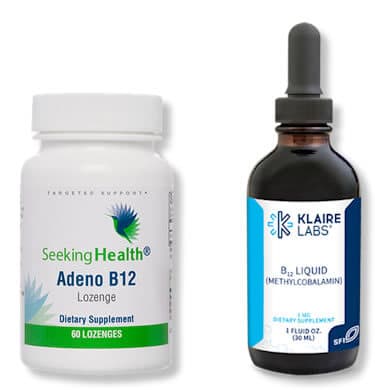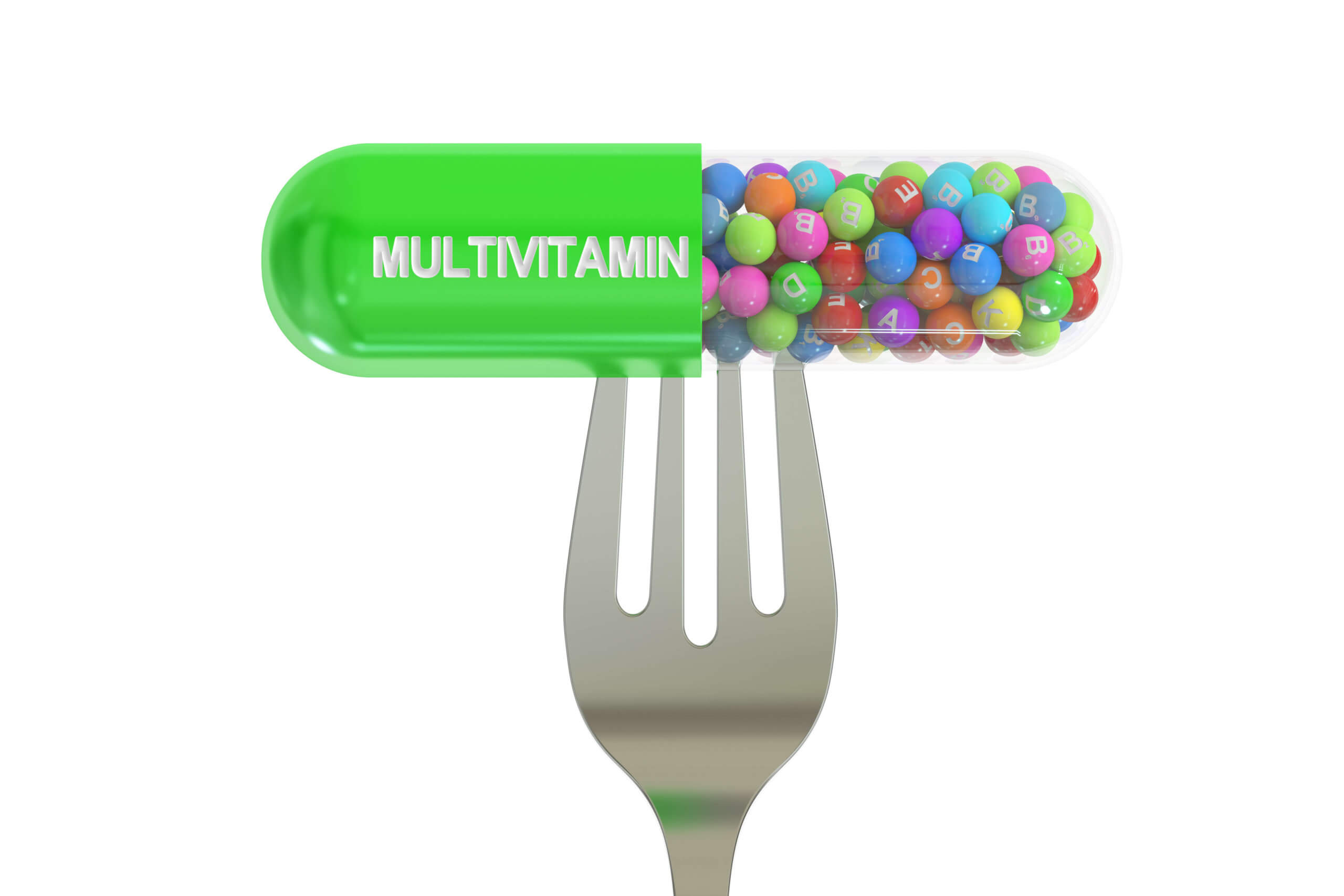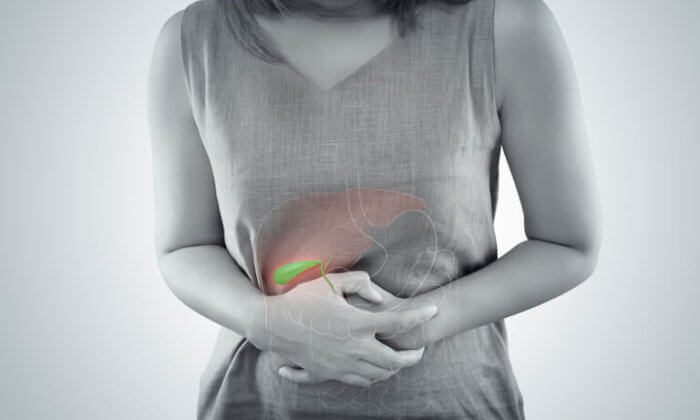Vitamin B12 Is Essential For Energy, Healthy Aging, and the Brain
| | Reading Time: 5 minutes
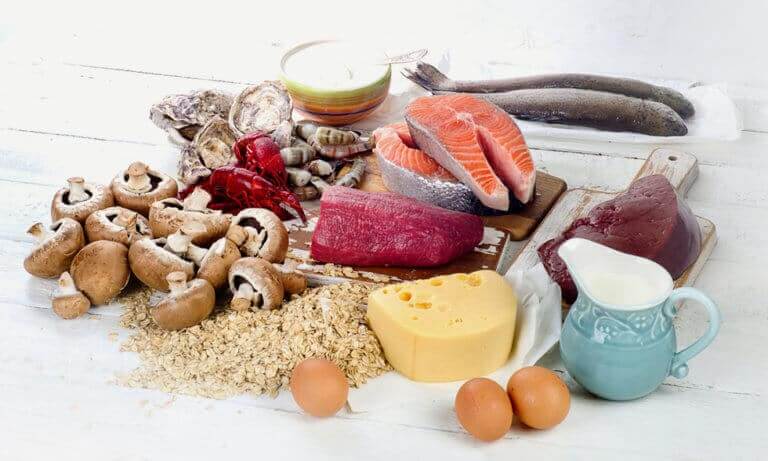
Nutrients are essential for life. Vitamins and minerals are required in small amounts but play oversized roles in health and disease. However, vitamin B12 might be the most overlooked and misunderstood nutrient.
Vitamin B12 Deficiency Causes Many Symptoms
Vitamin B12, or cobalamin, is an essential nutrient needed for the function of the nervous system and for forming blood cells. It’s also required for healthy DNA methylation to prevent cancer, Alzheimer’s disease, and during pregnancy. And low vitamin B12 is a factor in high homocysteine, an amino acid linked to an increased risk for cardiovascular disease like stroke.
Low B12 causes weakness, fatigue, and depression, but also other symptoms, including numbness or tingling in the hands, feet, and legs. You may feel colder than usual, leaving you shivering even indoors. Difficulty walking, staggering, and balance problems are sometimes seen in those with low B12. And a classic sign of severe B12 deficiency is a sore, inflamed, smooth beefy-red tongue.
Those with Celiac disease, Crohn’s, or other gut disorders, and those taking drugs to calm heartburn, like omeprazole, have difficulty absorbing B12. The same is true for irritable bowel syndrome (IBS) patients. As a result, many of their symptoms may be caused by B12 deficiency, not their gastrointestinal condition.
More Vitamin B12 Isn’t Better
Too much vitamin B12 can result in high levels on a blood test. The solution is to take less. However, suppose you don’t take a B12 supplement or get shots. In that case, a persistently high level can signal severe disease, including liver and kidney conditions and some types of tumors. Some researchers found that those with high B12 levels have shorter lifespans.
However, clinical conditions associated with high B12 are uncommon. If your B12 level is too high, it’s most likely from taking too much. When you take more than 2000 mcg of B12, be sure to take a vitamin B complex or a multivitamin to avoid misbalancing other vitamin B family nutrients.
What Are Optimal B12 Ranges?
A 2015 Australian survey on levels of crucial nutrients, including vitamin B12, found many had suboptimal levels. One of the things they found was when B12 serum levels drop below 550 pg/mL, cerebrospinal fluid levels of vitamin B12 become low.
Quest Diagnostics recently raised the upper end of the normal cobalamin range to 1100 mg/mL. However, the minimum cutoff level is still too low at 200 pg/mL. Therefore, even though the upper limit of the laboratory reference range has changed, the lower end of the reference range remains the same. And that’s too low to detect all cases of B12 deficiency.
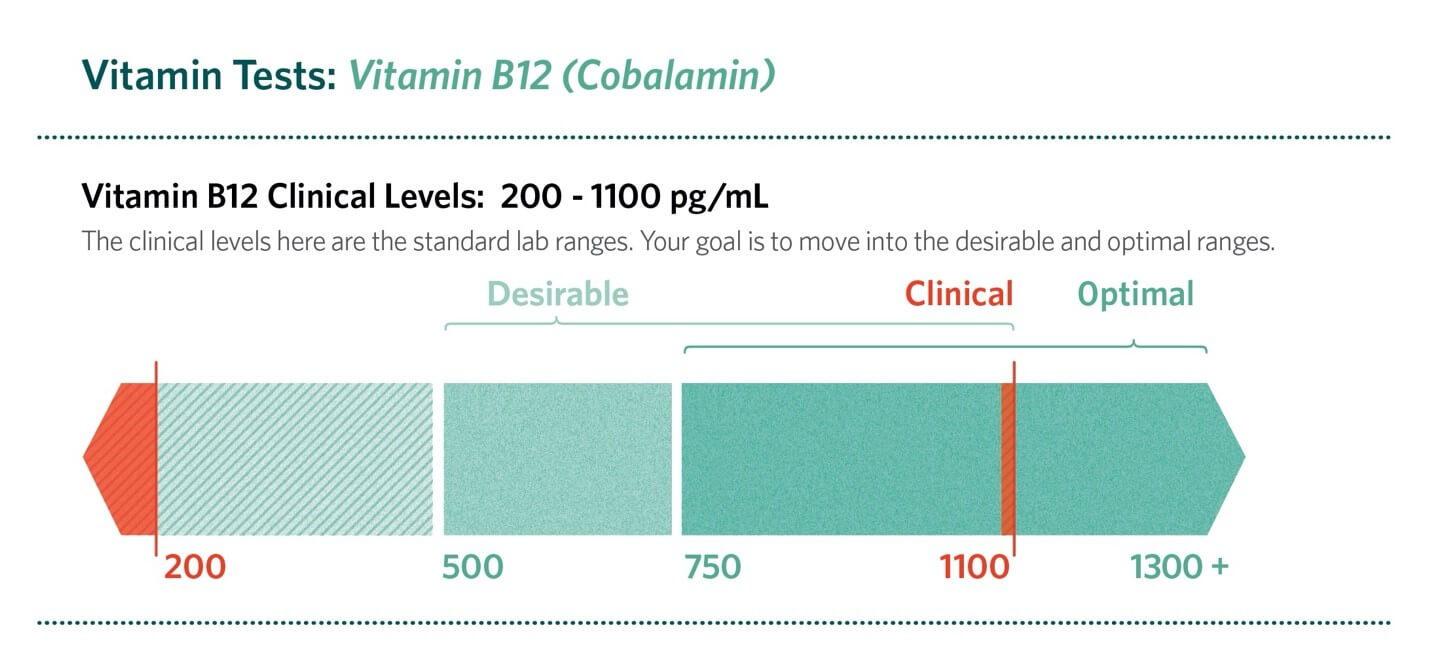
How To Test Your B12 Level
Serum B12 (cobalamin) in the blood is the standard way to check B12 status. A high urinary methylmalonic acid result helps confirm B12 deficiency. Elevated homocysteine is another way to assess B12 status. Additional tests include a complete blood count (CBC) and folate in serum and red blood cells (RBC). But serum B12 is accurate and the starting point for assessing your status.
Confirming B12 Deficiency From Serum Blood Test Results
| BLOOD SERUM LEVEL | CLASSIFICATION | SYMTOMS |
| Less than 200 pg/mL | Clinically significant deficiency | Highly present |
| 201-350 | Moderate deficiency | Moderate |
| 350-500 | Low normal but suboptimal | Subtle |
| Greater than 501 | Desirable level | Likely mild or none |
| 750-1300 | Optimal | None |
The Best Ways To Get Enough B12
Since gut bacteria in animals synthesize vitamin B12, the best food sources are meat, poultry, and fish. Cooked beef liver has the highest amount. Shellfish also have B12, including clams, shrimp, and raw oysters. And milk and eggs also have some.
But for all the health benefits of a vegetarian/vegan diet, vitamin B12 deficiency is near-universal in strict vegetarians and vegans. They often require supplements or injections to get enough B12. But, grain-based fermented foods, some cheese, and fermented vegetables like Korean kimchi have some, as do miso and tempeh. Fermented black tea also has some B12.
Scientists once thought that plants didn’t make B12 nor need it for their growth and development. However, some plants like garden cress can absorb B12 from the soil, as long as it is not deficient. Other vegetarian sources of B12 include shitake mushrooms, edible seaweeds especially green and purple laver. Chlorella and spirulina also have B12. But the type of B12 found in these foods is not biologically active, so it doesn’t raise B12 levels in the blood. However, nori – the kind of seaweed sheet used to wrap sushi – has bioavailable B12.
Quick Take 1:
Vegans and vegetarians can get B12 from plant sources, but have to consume a lot of these foods daily, including organically grown cress, shitake mushrooms, nori seaweed, and fermented vegetables.
B12 Deficiency Treatment Recommendations
I start treatment using hydroxocobalamin 1,000 mcg by intramuscular injection. Then, we teach patients how to give themselves additional shots and are sent home with preloaded syringes to self-inject every other day for two weeks. After that, I recommend once every two weeks for 2-3 months, followed by monthly injections until their condition normalizes. Challenging cases require at least two years of B12 therapy.
Quick Take 2:
Too much B12 in supplements can interfere with metformin, anti-seizure drugs, proton pump inhibitors like omeprazole, and some antibiotics like tetracycline.
Methylcobalamin may be better for treating the neurological symptoms of B12 deficiency. Be patient because it takes time to replenish tissue stores of B12. After a course of intramuscular injections, I switch to oral B12.
There are many forms of B12 supplements, including capsules, pills, tablets, and drops. In cases of chronic gastrointestinal conditions, I recommend sublingual tablets or liquid drops to bypass the gut.
Bioidentical forms of B12, including methylcobalamin, adenosylcobalamin, hydroxocobalamin, are preferred over cyanocobalamin because of better bioavailability and safety. All three improve B12 status. However, adenosylcobalamin may be better at increasing B12 levels within the mitochondria, benefiting ME/CFS patients.
Two of the supplements I recommend.
Save 10% on all Dr. Williams’ supplement protocols from Fullscript.
Start With B12 Injections
B12 injection work. However, the benefits wear off quickly, and injections need repeating every few days for several weeks. Those with long-term vitamin B12 deficiency need hydroxocobalamin 1000 mcg shots daily for one week, followed by weekly injections for two months. Afterward, monthly injections are sufficient, but some require lifelong shots.
Think of B12 As A Nerve-Protective and Regenerative Compound
Some health experts believe that B12 performs more functions in the body than as a vitamin alone. Forward thinking nutritionists have argued for rising B12 requirements and updating the lab test cutoff point for B12 deficiency. Based on contemporary research, more dieticians recommend supplementing B12 when a blood test shows a level less than 350 pg/mL. For those with ME/CFS, autoimmune disorders, and degenerative neurological diseases like Parkinson’s and Alzheimer’s, I advise aiming for no less than 500 pg/mL, with an optimal of at least 750 pg/mL.
Vitamin B12 Replacement Conclusion
B12 deficiency is under appreciated and underdiagnosed. It’s not routinely tested and even when tested the lower end of the reference range is inadequate for defining deficiency status. But don’t wait for the consensus to change soon. Get tested and enhance your B12 levels now.
